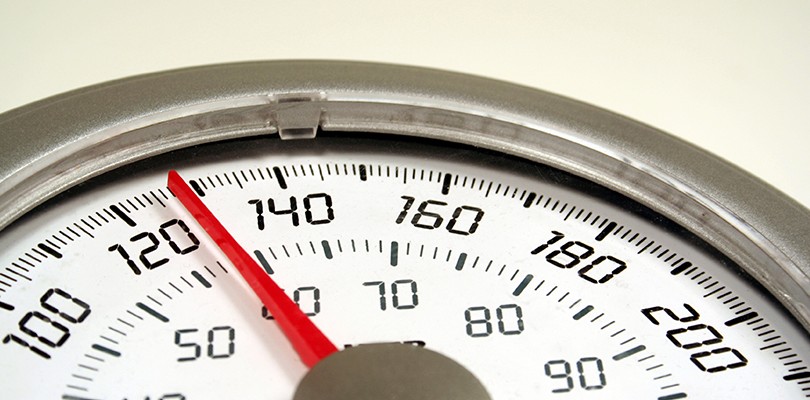
Photo Credit: Neeila / istockphoto.com
Exercise for Asthma
You may be looking at the title of this article and thinking it is an error. After all, many people think that exercise actually causes symptoms of asthma, like with exercise-induced asthma, or that it makes overall asthma symptoms worse.
There has been much debate on the topic for years, but the verdict is in: as long as it is done safely and with approval from your doctor, exercise greatly benefits asthma suffers. The positives range from routine to shocking, with both mental and physical health implications.
Read on to learn the ways that lacing up your sneakers, diving in for a few laps or playing ball might be one of best choices you can make to reduce asthma symptoms.
1. It Helps You Understand Asthma.
Asthma can be a scary, unknown force in your life. It can come on all at once leaving you stunned and reeling, or it can be a slow, agonizing build. In either case, you may feel controlled by asthma, like you are subjected to its every whim. Exercise helps because it allows you to practice observing how asthma works and influences your body. The more repetition you have exposing yourself to symptoms, the better your ability to gather useful information. When you notice slight changes, you become better prepared to assess and react to the next attack

Photo Credit: dolgachov / istockphoto.com
2. It Helps You Decrease Stress.
Look at this benefit as a simple mathematics problem. Adding exercise equals less stress. Less stress equals fewer asthma symptoms. So, adding exercise equals less asthma. Exercise benefits stress in so many real, tangible ways. Exercise helps add desirable chemicals into your brain that improve mood and anxiety. When your mental health is improved, your physical health begins to take note and follows along.

Photo Credit: Antonio_Diaz / istockphoto.com
3. It Helps You Know Your Limits.
At times, people begin listing all of the activities they can no longer perform, the places they can no longer go and the people they can no longer be around because of asthma. It starts to feel like the only safe place for you is inside your home. After a while, your fortress begins to feel like your prison. People who try to incorporate exercise push past the perceived limitations asthma puts on their life. Surely, you cannot perform every task all of the time, but the range of your abilities may surprise you.

Photo Credit: hammett79 / istockphoto.com
4. It Helps You Build Muscles.
Exercise improves your physical health in direct and indirect ways. Directly, exercise will improve your muscle tone and strength. Indirectly, having stronger muscles means that less energy and work is required when doing tasks in your life. Less work puts less strain on your body and does well to reduce physical asthma triggers. Stronger muscles allow for more accomplishments with reduced risks.

Photo Credit: KatarzynaBialasiewicz / istockphoto.com
5. It Helps You Improve Your Sleep.
Exercise is a tremendous way to regulate your sleep and energy cycles. Since everyone has natural peaks and valleys to their energy during the day, you can use exercise to regulate these cycles to be more desirable to your lifestyle. Improved sleep is another way to reduce stress, which improves your asthma. Serotonin is a neurotransmitter released in your brain during exercise, and this chemical helps to regulate your sleep patterns. Experiment with exercise at different times of day to boost energy in the morning or begin to unwind towards bedtime.

Photo Credit: kzenon / istockphoto.com
6. It Helps You Improve Cardiopulmonary Functioning
Your cardiopulmonary functioning is a fancy way of saying your heart and lung health. When asthma is a part of your life, having a strong heart and a strong set of lungs will help reduce the risk of ongoing asthma attacks. Essentially, your heart is a muscle that gets stronger and more efficient with increased use. An efficient heart supplies oxygen throughout your body quickly and effectively. Your lungs might not be muscles, but the same process is true. The more you use your lungs, the better they will be able to do their job. Having a heart and a pair of lungs that are working at maximal capacity is a great way to reduce frequency and intensity of asthma attacks.
Although air pollution can complicate life with asthma, it doesn’t have to prevent you from getting out of the house — as long as you take precautions.

Photo Credit: MaleWitch / istockphoto.com
7. It Helps You Tell the Difference Between Asthma and Anxiety
Unfortunately, there is a strong relationship between asthma and anxiety. Largely, this relationship is due to the overlap in symptoms between the two conditions – shortness of breath, feeling dizzy and tightness in your chest. Your brain begins to think you are having an asthma attack during periods of high anxiety or stress. You begin to react like you’re in danger, which only builds the anxiety and, in turn, the asthma. This cycle is problematic for many people with asthma. Exercise helps break this cycle in two ways. First, it reduces the anxiety that triggers the asthma attacks. Second, it exposes you to both sources of symptoms. Through the exposure, you can begin to tell the difference between asthma and anxiety to address each need differently.

Photo Credit: Ljupco / istockphoto.com
8. It Helps You Reduce Severity of Attacks
Frequency of attacks is something that people are always interested in reducing. You have come to the realization, though, that you will never be able to reduce your attacks to zero. If they have to occur, your goal is to make them as painless as possible. People who exercise regularly report having asthma attacks that are less severe than people who do not exercise. Less severe attacks are less impactful and frightening. If exercise can save you the fear of a major attack, it seems like a worthwhile endeavor.

Photo Credit: ca2hill / istockphoto.com
9. It Helps You With Weight Management
When you are looking at factors correlated to higher risk of frequent or intense asthma symptoms, weight always comes to your attention. People who are overweight typically have worse asthma symptoms that are poorly controlled. By exercising more, you can burn off extra calories throughout the day that will lead to noticeable changes at the end of the week, month or year. Remember, exercise will not magically melt away pounds put on my soda and snacks, but it will work to create a healthier lifestyle that, paired with improved diet, can make lasting improvements.

Photo Credit: dina2001 / istockphoto.com
10. It Helps You Rely Less on Medications
Some people simply do not like being reliant on their medications. Maybe you feel like a failure for always having to carry around your inhaler. Being safe and responsible is always a good measure, but if you want to actively do something to change your situation, exercise is for you. Many people who exercise regularly report decreased need of their asthma medication. Reduced dependence of medications means you can be free and untethered from something that you perceive to be holding you back. If that independence is important to you, go get it.

Photo Credit: lzf / istockphoto.com
11. It Helps You Improve Your QOL
Whenever studies are done on the effect of exercise on asthma, a major component they look for is quality of life, or QOL. It is a measure that is a combination of many factors including happiness, optimism, feelings of freedom and control in life. Though the exact factors are inconsistent, there is a clear relationship between exercise and quality of life. In the vast majority of situations, asthma sufferers who report regular exercise patterns also report a higher quality of life value.
Exercise can make your life better and your asthma better. Sounds like a reason to get sweat
Read more about breathing exercises and exercise induced asthma over at NewLifeOutlook.
An asthma journal is a useful tool that helps you to track your asthma symptoms in an attempt to understand their tendencies better.








